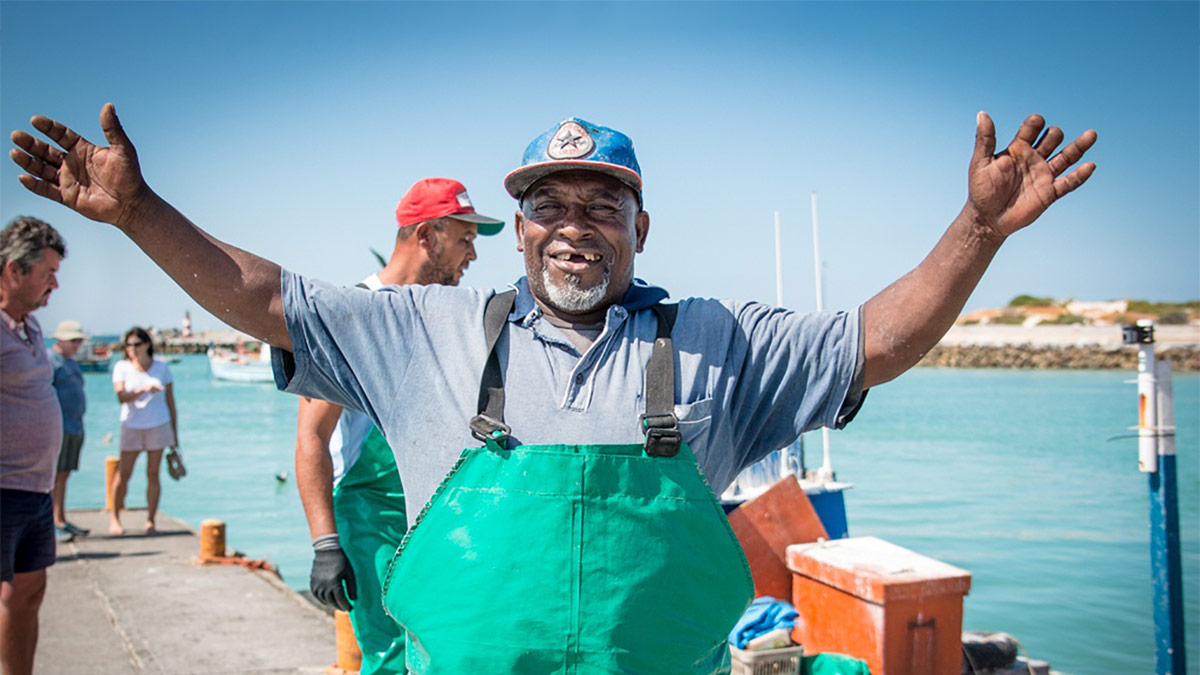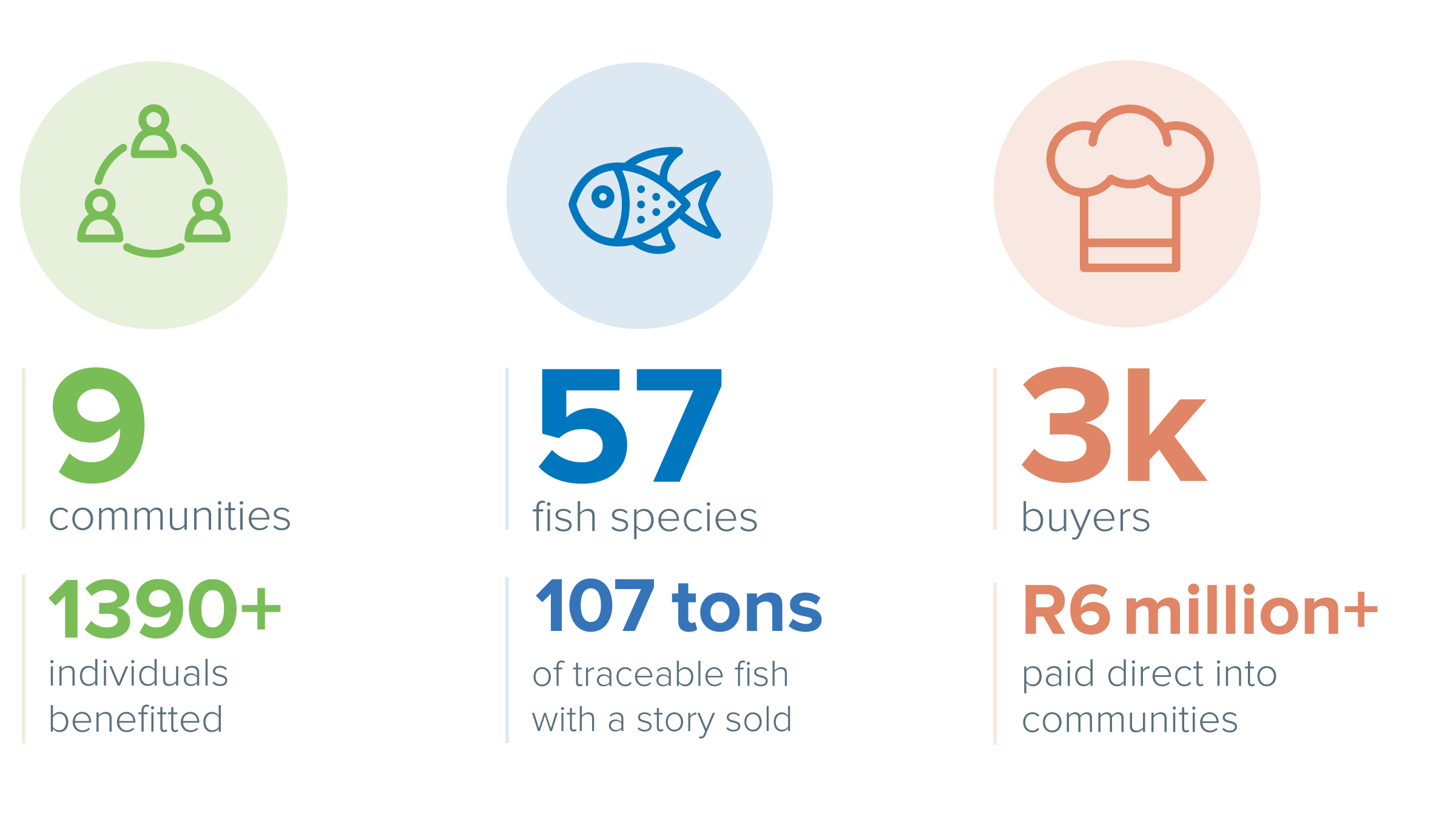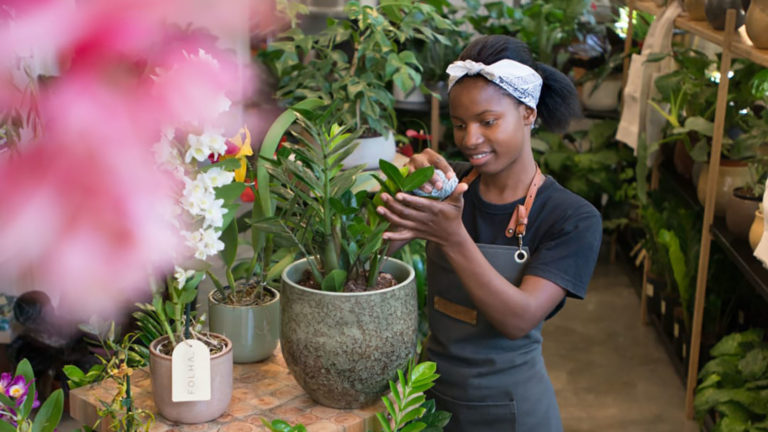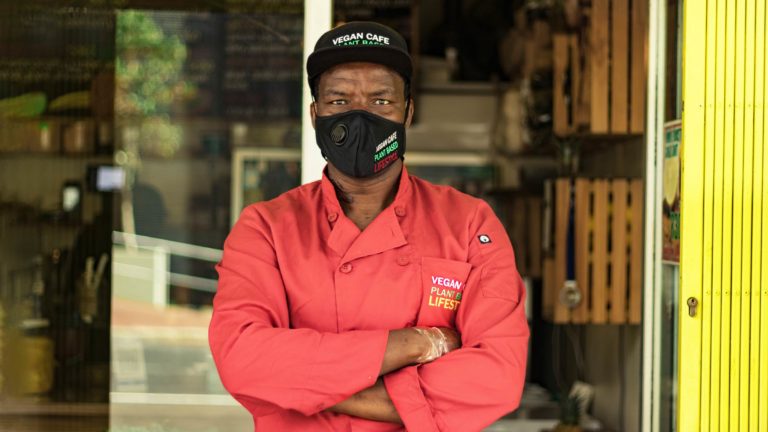ABALOBI: “Fish with a story”

Caitlin
26 Oct, 2020
ABALOBI has been taking the local tech, culinary, and sustainability scenes by storm. With ABALOBI’s #fromhooktocook and #fishwithastory campaigns, people are able to see exactly where their fish come from and who caught it – offering a transparent supply chain.
ABALOBI’s mission is to contribute towards thriving, equitable, and sustainable small-scale fishing communities in South Africa and beyond through the collaborative development of technology.
Importantly, the way ABALOBI conceptualise sustainability is not just through the ecological lens, it includes both social and economic factors. The fishers* that ABALOBI partner with are integral to the collection of data, development of technology, and sharing of local indigenous knowledge. *Fishers = gender-sensitive term for people who fish for their livelihood.
Read more: Sealand Gear: turning yacht sails into responsible sales
Watch our “Fish with a story” video to see the work ABALOBI do:
We continued our conversation with Daniel Smith, Marketplace Engagement Manager, to find out more about ABALOBI’s approach to sustainability and some of the challenges they are currently tackling:
ABALOBI’s approach to sustainability has been one of disruption of the current status quo. This has led us to re-look at how sustainability has been defined as well as by who and for who. We recognise the legacy of our exclusionary history, which has resulted in a radical shift in approach to tackling issues linked to climate change, systematic exclusion, the inherent poverty cycle, and over-fishing. Our approach focuses on achieving tangible milestones, driven by a suite of mobile apps, that relate to seafood traceability, fully documented fisheries, fair and transparent supply chains, and community cohesion.
The ABALOBI Theory of Change is based on the hypothesis that sustainable development can only take place when we do our very best to look at the system as a whole: ecological, social, and economic concerns are addressed.
What’s something that’s been very challenging, and how have you overcome it?
Turning a smartphone into part of a fishers tackle box remains a challenge. Logging in, clicking a drop-down menu, and entering one’s personal details is a very new experience for many small-scale fishers that we work with. Gaining trust and building confidence is a challenge we face on a day-to-day basis. We have overcome these challenges with a strong community development team with a defined approach, as well as the willingness and commitment by fishers to change the status quo.
Read more: Fabricate: supporting local designers
What is most rewarding about the work you do?
It is difficult to define, there are many… In my role managing the South African Marketplace, I would highlight the connection that has been forged between two worlds that otherwise would have never collided; a small scale fisher, like Wilfred on the West Coast, having a life-changing business relationship with some of the top chefs in South Africa, like PJ from Vadas Smokehouse. This is something very special for many men and women along our beautiful coast.
The other game-changer that regularly gives me goosebumps is knowing that fishers are not only being fairly paid for their catch but they are being celebrated and recognised. Fish species like Cape Bream (Hottentot), that were often disregarded and considered a low-value species, are now lauded by top chefs and being served as a premier dish where culture and heritage are collectively celebrated.

How has SnapScan become part of your journey?
SnapScan became part of the journey at a critical time where fast, secure, and trusted payments were required by both chefs and individuals. Convenience is critical to the user experience of buyers wanting to support small-scale fishers. It was clear that SnapScan was the payment solution that was already a household name in South Africa. We already use QR codes on all our orders to give instant access to the story behind your catch. To avoid any confusion here, we opted for integrating SnapScan SnapLinks into our Marketplace app so pro chefs and home chefs could use the SnapScan payment option at checkout.
What is the value of SnapScan for you and your customers?
At a time where contactless, user-friendly payments are crucial for one’s safety (considering the COVID-19 pandemic), SnapScan gave our buyers peace of mind as they paid fishers directly through our digital Marketplace app. The value to us was the smooth integration between the platforms, which meant fishers could continue their fishing operation despite the pandemic.
Once again, convenience and reliability ensure that fishers are paid timeously for their catch, which secures their income, global pandemic or not. A fishers’ ability to catch and sell fish via the ABALOBI Marketplace enables fishers to ensure food security within their community, which is a daily challenge for many families. Fishers “staan mekaar” and look after one another.
Individuals and chefs can order fresh, sustainable, and traceable fish via the ABALOBI Marketplace app. Download the app from the Play Store or App Store. And of course, don’t forget that you can pay with SnapScan.
Interested in signing up your business with SnapScan? Sign up here.
If you’d like to share your business’ SnapScan story with us, please get in touch at stories@snapscan.co.za.
Related articles

Folha Plant Shop: an eden in the city
Folha offers a literal breath of fresh air, nestled in Cape Town's bustling streets.

Sealand Gear: turning yacht sails into responsible sales
Ever thought to wear old yacht sails on your back? The Sealand crew sure did!

Sunshine Sprouting Co: the best veggie burger you’ll try
The Sunshine Sprouting Co, owned by Elisha Madzivadondo, serves delicious vegan burgers in Cape Town.
